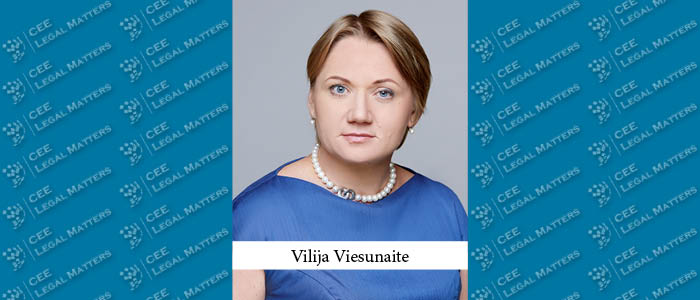Lithuania’s intellectual property (IP) market is active in the area of trademarks and copyright, with businesses and creators starting to understand the value of IP protection. This trend does not yet extend to patents, but trade secrets are a highly litigated area, and their protection is broader than ever.
For start-ups, it is not only investors that prefer to secure IP they invest in. Founders too are realizing that protecting their IP is a great way to attract investments into their business. Lithuania’s game industry in particular is experiencing a rise in activity, bringing with it plenty of copyright and trademarks in need of protection. As many game developer companies are start-ups, they require a lot of information on how their IP rights work and what can be done to protect them, and advice is readily available.
The EU is currently sponsoring a compensation scheme for new trademark registrations. This scheme has made it more accessible for small businesses and start-ups to consider registering their trademarks, which may have otherwise been out of reach. However, Lithuanian businesses have been active in registering their trademarks even before this scheme – in 2021, there were over 2,500 national trademark applications. In 2022, there were just under 2,000 applications, and this year so far, there are slightly over 1,600. As for European Union trademarks (EUTMs), there were 1,031 applications in 2021, 960 in 2022, and so far more than 860 this year. So, businesses in Lithuania seem to be enthusiastic about registering their trademarks, with or without compensation.
The National Patent Bureau handles trademark disputes and tends to resolve most of them before the need for courts arises. Even so, compared to the amount of trademarks filed each year, the amount of disputes is very small – appeals vary within a 10-20 margin per year, and oppositions within a 40-60 per year margin. So, of the thousands of applications per year, very few are disputed.
There is also an increase in Lithuanian scientists, specifically in the field of biotechnology and pharmaceuticals, who are scattered around the globe, seeking to agree with their co-creators on sharing IP rights. Since Lithuania is a rising star in the field of biotechnology, the gradual influx of scientists is likely to keep rising, and their concerns about protecting the IP they created abroad will become more pressing.
With the addition of multiple scientists, developers, and other interested parties into the field of IP disputes, there has been a rise in litigation concerning trade secrets. The EUIPO reported that Lithuania displays a disproportionately high trade secrets litigation level, which bodes both good and bad news for businesses established here – trade secrets may be disclosed, but litigators have experience in getting compensation for them.
Also, recent case law (incidentally, concerning a company from the pharmaceutical sector) shows a broad interpretation of what constitutes a trade secret, extending it to information about customer data. The Supreme Court of Lithuania clarified that data is to be protected as a trade secret if it contains information other than the name of the customer that is not available to the public, such as contact persons, decision-makers, business practices, technical information to support operations, service and quality requirements, planned projects, and solvency. This ensures that trade secrets are more protected than ever, and, in turn, so are businesses.
One area where Lithuanian companies are not utilizing their access to IP protection is patent protection. There are usually very few cases involving patent disputes – there are no decisions yet this year, nor were there any in 2022. At the same time, of those who do choose to get patents, most are still reluctant about the new Unitary Patent system.
In summary, the importance of IP is growing in the Lithuanian market, with copyright and trademarks on the minds of investors, creators, and scientists. Trademark registration rates are unaffected by EU compensation, which shows the genuine interest of Lithuanian businesses to keep protecting their marks, with or without compensation. Reluctance to get patents is evident, but with advancements in the field of biotechnology and pharmaceuticals, this part of IP is likely to become relevant soon as well.
By Vilija Viesunaite, Managing Partner, Triniti Jurex
